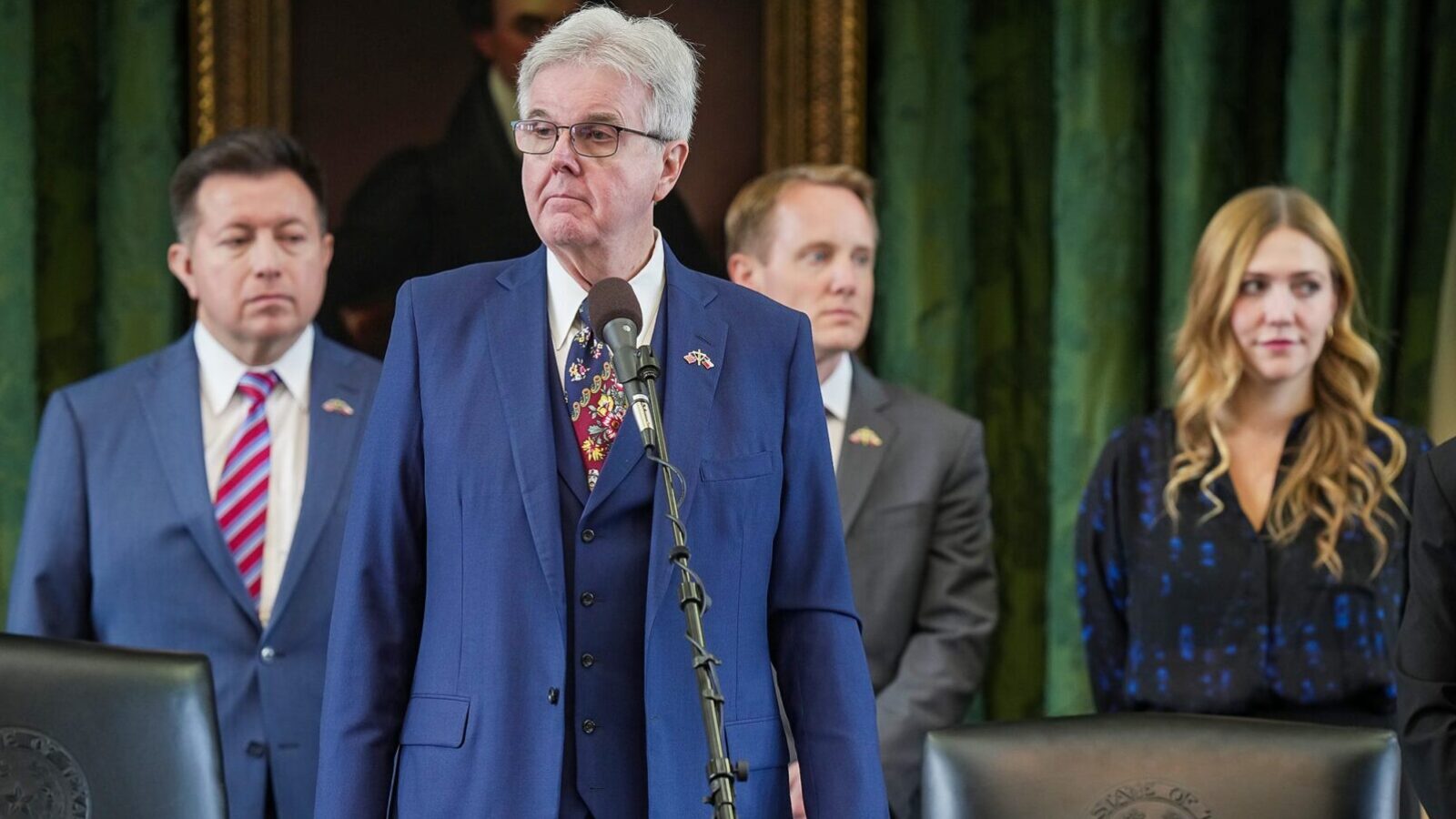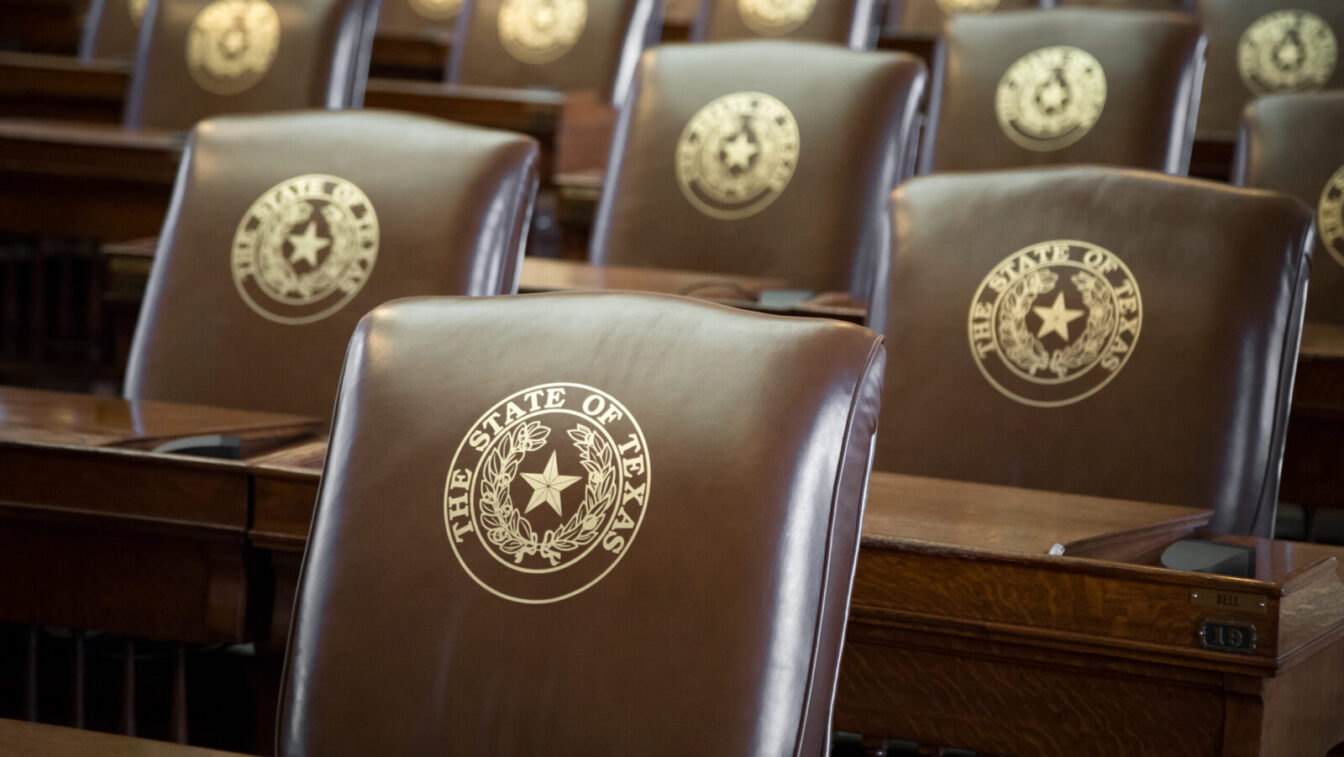Assessing The Texas Senate’s Views On Gambling Ahead Of November Election
Who among those serving in the state is likely to show favorability to casino legislation?
6 min

The 89th session of the Texas Legislature begins in January. Could 2025 be the year the Lone Star State finally legalizes casinos?
Despite Texas’ strong-rooted and long-standing stance against gambling, there are some major heavyweights with significant political influence in the state who want to see gambling legislation passed. And we’re not just talking about Mark Cuban and Miriam Adelson.
But it also doesn’t help at all that every single statewide office in Texas has been in Republican control for over 20 years — and part of the Texas GOP’s 2024 platform literally says it is against any form of gambling expansion.
This also doesn’t help: A bill that would have given voters the chance to legalize casinos passed the Texas House in the last session … but it didn’t even see the floor in the Senate. And Lt. Gov. Dan Patrick, the GOP leader of the Senate, has publicly said he believes there is little to no desire for casinos among Republicans in the 31-member Senate.
“My experience and my knowledge is that we aren’t even close to having 15 votes or 16 votes for casinos,” he told CBS News.
The future of Texas casinos starts and ends with the Senate. The consensus is that, to move forward with discussions of a casino bill, Patrick would need to know a majority of Republicans in the Senate — so either 10 of the 19 or 11 of the 20, depending on the result of a heated race in the Nov. 5 election — are open to it.
Is that possible?
Ahead of the election, Casino Reports takes a look at Texas GOP senators’ relationships with gambling and their likelihood of listening to casino legislation.
Sen. Bryan Hughes, District 1
Hughes isn’t up for re-election until 2026. And he seems to be a likely no when it comes to casino legalization.
In 2021, when Las Vegas Sands hired 51 lobbyists to push for expanded gambling in Texas, its Senate bill was assigned to the State Affairs Committee but never saw the light of day in that committee, and it died without a hearing.
The chair of that committee in 2021?
Hughes.
However, of note: Hughes received $10,000 in the 2022 election cycle from Houston Rockets owner Tilman Fertitta, who also owns Golden Nugget casinos and is a major player in the U.S. gambling power structure.
Sen. Bob Hall, District 2
Also not up for re-election until 2026, Hall is a prominent figure in the Texas religious community, which is staunchly opposed to gambling.
In fact, Hall was a featured panelist at the Texas Faith Fest 2024 and had this to say:
“There is no question that gambling can be addictive. It is just as bad as drugs.”
Sen. Robert Nichols, District 3
Less is known regarding gambling about Nichols, who also doesn’t need to worry about re-election until 2026.
He did vote for a bill in 2023 that would have expanded available options for foundations hosting charitable gaming. So that could be a glimmer of hope for casino advocates seeking Republican support in 2025.
Sen. Brandon Creighton, District 4
Another Republican senator who isn’t up for re-election until 2026, Creighton will likely be a solid no when it comes to casinos.
In early 2024, he asked the Texas attorney general to look into the legality of poker rooms. So we can’t possibly imagine he’d opt for casinos.
However, Creighton did get $10,000 in the 2022 election cycle from Fertitta.
Sen. Charles Schwertner, District 5
Again, a Republican senator not on the ballot until 2026.
And, again, a Republican senator with a track record of opposing gambling bills.
Sen. Paul Bettencourt, District 7
Now it starts to get a little interesting. Bettencourt is up for re-election next month and he’s fully expected to win.
During the last legislative session, he at least seemed open to the possibility of a sports betting bill getting passed, so perhaps he could eventually be swayed to feel similarly about a casino bill.
Sen. Angela Paxton, District 8
Paxton, the majority leader of the Texas Senate, voted against expanding options for charitable gaming in 2023 and will likely fall in line with her party’s anti-gambling stance when it comes to casinos.
She is up for re-election on Nov. 5 and will likely win.
Sen. Kelly Hancock, District 9
Hancock also voted against expanding charitable gaming options in 2023. He doesn’t need to worry about getting elected again until 2026.
Sen. Phil King, District 10
We’ll see with King, who will in all likelihood win on Nov. 5. He voted for the expansion of charitable gaming options in 2023.
Sen. Mayes Middleton, District 11
Middleton isn’t up for re-election until 2026.
He rather vocally opposed the Texas Lottery and accused it of seeking “ways to expand gambling through unregulated and unlicensed online apps” this past August.
We’ll take that as a sign that he’s not exactly in favor of adding more gambling options in Texas.
Sen. Tan Parker, District 12
Parker is likely going to be elected to another term on Nov. 5, and he’s another likely no for Texas casinos legislation.
Not only did he vote against expanding charitable gaming options in 2023, but the Dallas County Republican Party advertises his events, and it also promoted an event in October that was called “Stop Predatory Gambling In Texas” and featured a speaker from a group called Texans Against Gambling.
However, it is worth noting that Parker received $79,000 from the Texas Sands PAC (lobbying group representing Las Vegas Sands’ interests) in the 2022 election.
Sen. Joan Huffman, District 17
Huffman is an interesting case. She’s almost assuredly winning re-election next month. And she voted against that expansion of charitable gaming options in 2023.
However, way back in 2015, she had a casino lobby firm help her write a GOP caucus letter that opposed expanding gambling options at horse tracks. That whole situation caused a stink for Huffman, so she could very well try to distance herself from casino interests if the topic presents itself in 2025.
Or, maybe she’s open to hearing casino lobbyists out.
Also of note: Huffman received $7,500 in this election cycle from Fertitta, who also gave Huffman $19,083 in 2022.
Sen. Lois Kolkhorst, District 18
Kolkhorst pushed for the sports betting bill the Texas Senate considered last session. That signals a willingness to consider adding gambling options in Kolkhorst, who doesn’t need to worry about re-election until 2026.
Sen. Brian Birdwell, District 22
Birdwell represents an area including the city of Granbury, whose city council recently urged its residents to contact Birdwell and ask him to vote against a statewide bill that it claimed would, among other things, remove regulatory ordinances from “gambling halls” in Granbury.
If Birdwell’s constituents are focused on these kinds of things, you can probably bet Birdwell, who isn’t up for re-election until the next election cycle, isn’t going to be on the side of gambling expansion.
Sen. Pete Flores, District 24
Flores isn’t on the ballot until 2026, and he voted against expanding charitable gaming options in 2023.
Flores did receive $64,000 from the Texas Sands PAC in the 2022 election, though.
Sen. Donna Campbell, District 25
Up for re-election and a likely winner on Nov. 5, Campbell secured a ringing endorsement from Texas Values Action, a political advocacy group in Texas with a significant focus on religion and family values.
That group would not endorse a pro-casinos candidate.
The battle for District 27
The only Senate race that’s expected to be close is in District 27, which spans from Corpus Christi up north almost to Austin.
A Democrat, Morgan LaMantia, is up for re-election. Her opponent is Adam Hinojosa, the same Republican she barely beat for the seat in 2022.
LaMantia’s family has ties to the horse racing industry so her position on casinos — traditionally rivals to racetracks — may be complicated. But Democrats in Texas usually tend to favor gambling expansion, so another Democrat in the 31-member Senate could only be better for casino hopefuls than another Republican. And it’s worth noting Texas Sands PAC gave LaMantia $79,000 in the 2022 election.
As the lone Republican with a chance to flip a Senate seat next month, Hinojosa is getting endorsements from every major Republican across the state. He is touting his Christian faith, indicating a likely anti-gambling position.
Sen. Charles Perry, District 28
Perry, another next-election-in-2026 senator, is a staunch opponent of expanded gambling and has been for a long time.
Back in 2012, during a radio interview discussing a potential voter referendum on gambling in Texas, Perry expressed concerns that casinos would likely only benefit the state’s larger cities — and he also didn’t want to put his weight behind what he called another “entitlement program.”
“A 66-80 percent estimate of wage earners [who come to casinos] are of a lower social economic category that we typically are already either funding Medicaid, or either funding CHIPS, or either funding Lone Star, of either funding subsidized school lunches,” he said on 95.1 KFYO. “I don’t want to have to fund another entitlement program, or another vice for an entitlement program recipient that we are already funding at multiple levels.”
Brent Hagenbuch, District 30
Sen. Drew Springer is retiring, and Hagenbuch, a fellow Republican, is fully expected to win Springer’s seat in this election.
During his primary election campaign, Hagenbuch told the Texas Scorecard he’s opposed to any type of gambling expansion in Texas.
“While some Texans may support an expansion of gaming, I do not believe it will benefit our people in the long run — therefore I would be reluctant to support it,” he said. “The long-term social and cultural side effects outweigh any short-term economic gains. If Texans choose to seek out these activities, options exist just a short drive or flight away.”
Sen. Kevin Sparks, District 31
Sparks voted against adding extra charitable gaming options in 2023. He isn’t up for re-election until 2026.





